No excuses: Stefan Daniel’s journey to Paralympic fame
Paralympian Stefan Daniel will head to Tokyo as a medal contender in August
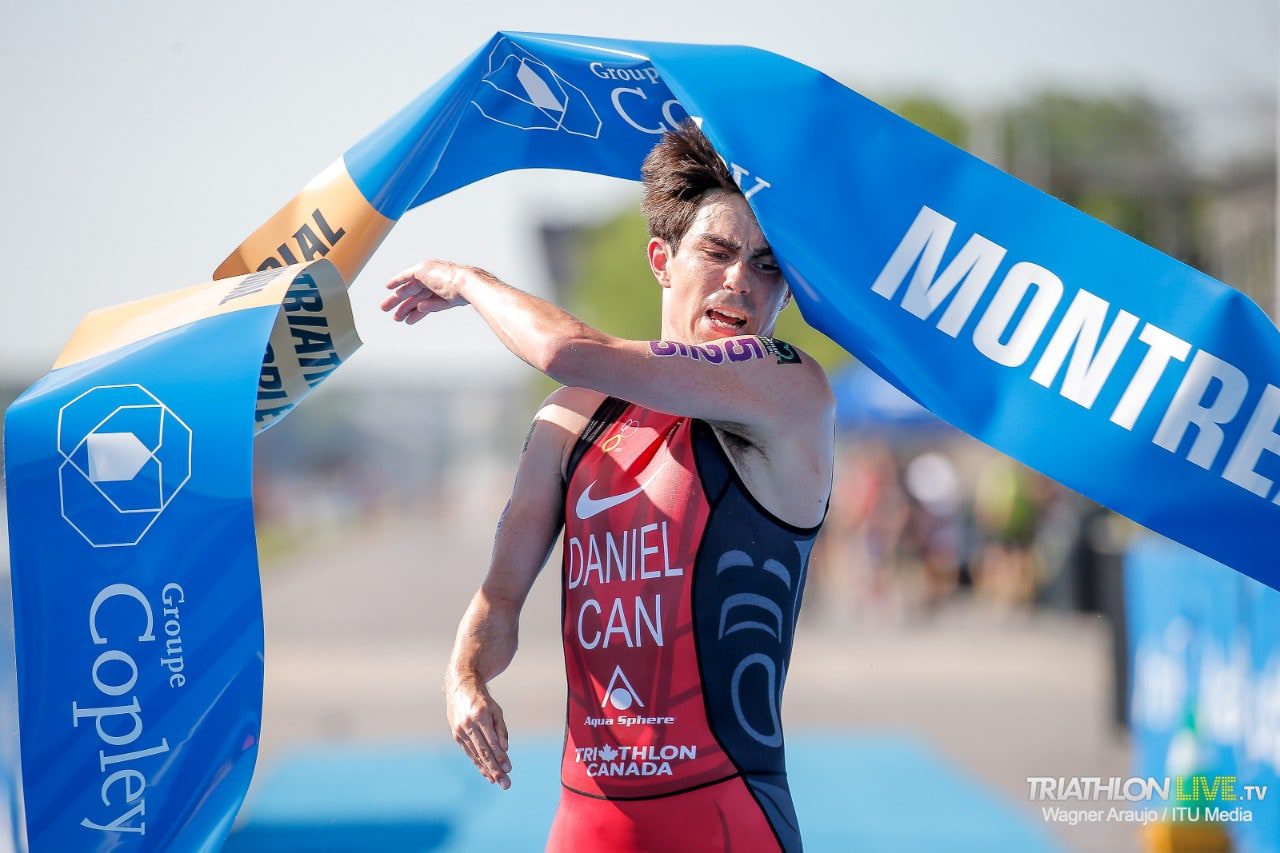
While he hasn’t officially been named to Canada’s Paralympic team, it’s hard to imagine that we won’t see 2016 Paralympic silver medalist going for gold in Tokyo in August. Fresh off an impressive win at the World Triathlon Para Cup A Coruna in Spain, Daniel is gearing up for a return trip to the Games. Earlier this year Daniel was featured in Canadian Running Magazine, as much for his running exploits as his impressive Para triathlon results. As we look forward to both the Olympics and Paralympics in Tokyo this summer, we thought we’d share this look at Daniel’s rise to the top of the sport.
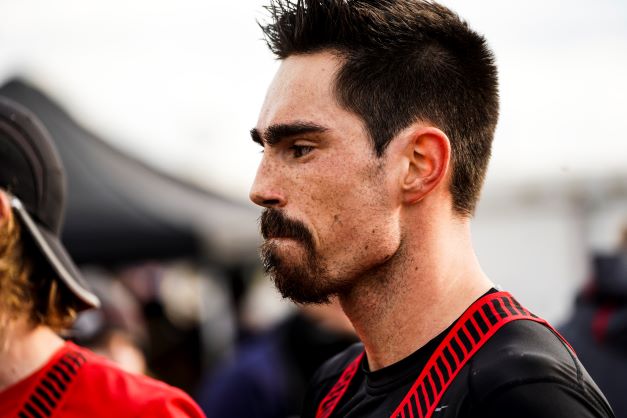
Unless you’ve experienced it, it’s really hard to describe the pressure of a national cross-country championship when the title is on the line. It’s different if your team is simply looking for a good day – say, a finish in the top five. To win gold requires sterling performances from everyone on the team. There’s no room for anyone to have a bad day.
Even if you might have a stress fracture. Even if you are the world’s best Para triathlete, with four world titles to your name and a Paralympic silver medal earned when you were just 19.
“He’s the glue of the team,” Calgary coach Doug Lamont says of Stefan Daniel. “He got us through the tough times.”
In November, 2019, Daniel lined up at the Usports national championships at Fort Henry in Kingston, Ont., alongside his University of Calgary Dino teammates, looking to help the team win a second straight national title. Lamont credits Daniel as being the anchor that helped the team take silver at the national championships two years before, a surprise performance that set the group up for gold the following year. While certainly filled with talent, the Dinos didn’t have a superstar to lead the way – the wins came from the group running to their highest level on the day it counted most.
“When Stefan came onto campus and we got the silver medal in Victoria, it was strictly because of the team,” Lamont remembers. “When we won the following year in Kingston for the first time, they were willing to put themselves on the line for each other.”
None more so than Daniel. If anyone had a reason not to take on the challenging, muddy course on that cold, wintry day on a hill many call the windiest spot in Canada, it was the 23-year-old Calgarian. Two weeks before he’d taken the CanWest cross-country championships in a wire-to-wire performance. Then his foot started to hurt.
“I ran through it and the pain went down through the week,” he says. “Four or five days before USports, I wasn’t feeling anything. I didn’t feel anything during the race, either, but immediately afterwards I knew something was wrong. I was in a lot of pain.”
After finishing 10th the year before, Daniel took 12th in Kingston, the third runner on the team behind fellow triathlete Russell Pennock (third) and Matthew Travaglini (fourth). The team took the title by 19 points.
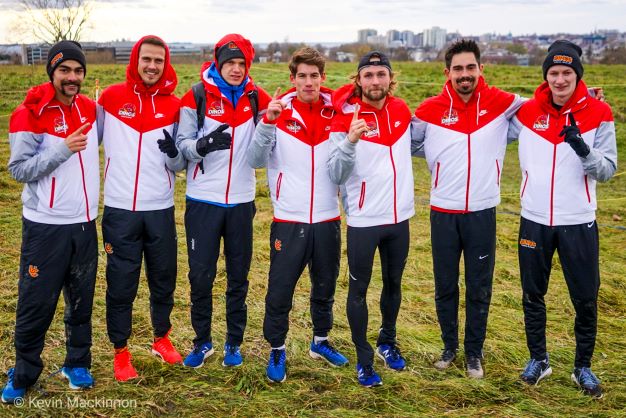
“In a team environment the success of the team is everyone doing their role,” Lamont says. “Russell was our strongest runner – he was the official captain of the team. He led by the fact that he was the best on the team, whereas the other athletes did their roles because they stepped up on the day. Stefan’s role was more about the glue of the team. He really believed in how important team was for them to be successful.”
Related: Stefan Daniel named Triathlon Canada triathlete of the year
That pain in his foot eventually forced Daniel to take the next six weeks off. Five and a half of those weeks were on crutches as he recovered from a stress fracture in his navicular bone.
Not exactly the optimal preparation for a prohibitive Paralympic favourite.
No Excuses
For those who know Stefan Daniel, though, its impossible to imagine any scenario in which he wouldn’t have run that day in Kingston. Daniel was born with bilateral radial club hands (his right arm is more affected), but grew up in an environment where his arms weren’t going to be a reason not to do anything he wanted to. He grew up watching his brother Christian, who is four years older and has Cerebral Palsy, compete in swimming.
“My brother taught me not to let anything limit you,” Stefan says. “Don’t let anyone tell you you can’t do something.”
“My brother was one of the slower swimmers in the club,” Stefan remembers, “but he always had a smile on his face, always worked harder than everyone else. It rubbed off on me. He didn’t care what he had, he just wanted to do the best he could with what he had.”
“That was him,” Christian says when asked about his brother’s memories. “He’s just being nice.”
It’s not hard to imagine that both the Daniel boys were dueling for the title of hardest working athlete in the club. With dad, Chris, who played what he describes as “semi-professional” soccer in the North American Soccer League (NASL) and, for a year for a club in Germany, and mom, Sue, who qualified for Boston thanks to a 3:39 marathon in Kelowna, athletic success was the norm in the household. After he gave up on his soccer career, Chris turned his sights to endurance sport, making his long-distance triathlon debut at Ironman Canada in 1991, where he qualified for the Ironman World Championship in Hawaii. He would compete in Hawaii again in 1994. In 2010 he qualified for the worlds again at Ironman Arizona, racing on the Big Island the following year, 20 years after his first appearance. Sue was a “one and done” Ironman athlete, completing Ironman Florida in 12:01:15 in 2009.
There was never any thought that either Christian’s Cerebral Palsy or Stefan’s arms were going to prevent them from doing anything they wanted to do, as far as Chris and Sue were concerned. There was rock climbing, Kids of Steel triathlons, cross country running and, of course, swimming.
“Swimming provided so much opportunity for growth,” Sue says. “The discipline and focus.”
Swimming required the family be all in – mornings started at 4:45 to get to the day’s first swim practice, then there was school, another swim practice in the afternoon, homework, bed and then yet another 4:45 wake up. Both boys excelled in the pool as Para swimmers – in 2012 Christian improved his personal best time for the 400 m freestyle by almost 30 seconds, missing the Paralympic qualifying time by less than a second. Swim Canada was hoping Stefan would follow in his big brother’s wake, but when Para triathlon was added to the 2016 Paralympic Games in Rio, Stefan decided he wanted to focus on triathlon.
Related: Stefan Daniel wins Canada’s first Paralympic triathlon medal
Much of that decision was based on the youngest Daniel’s love of running. Swim Canada’s vision was that, like his big brother, Stefan would turn his focus solely to the water.
“Running has always been my favourite part of triathlon,” Stefan says. Triathlon, though,allowed him to continue to run and still keep swimming. “Running was always my number one passion, but I didn’t want to give up swimming.”
Even with all the time spent at the pool, as a kid Stefan had participated in lots of running events. There was the occasional road race with his mom, and, when he was 12, there was the Okanagan Half Marathon. After bugging his dad to let him take part, Chris agreed, as long as he promised to pace himself. Concerned that Stefan would fly off the start and push too hard, too early, Chris insisted that Stefan had to run with his dad until they got close to the finish.
With a few kilometres to go, Chris told Stefan he was free to run into the finish at his own pace. Not happy with his 1:25 finishing time, as soon as Chris managed to catch back up at the finish line, Stefan expressed his frustration.
“I could have gone way faster if you hadn’t slowed me down for the first 19 km,” Chris remembers Stefan saying.
That one foray into long-distance running at such a young age didn’t affect Stefan’s speed, and over the years he continued to do well as a runner. In grade 9 he joined the University of Calgary Athletics Club and worked with renowned coach Mike Van Tighem. He won the Alberta cross country and 3,000 m provincial titles in grade 10 and 11, then won the youth national cross country title in 2014 at Jericho Beach in Vancouver.
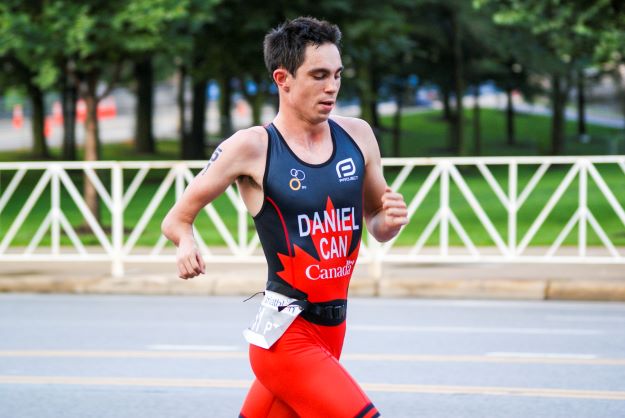
The year before he took that national title he’d turned his sights to Para triathlon and it wasn’t long before his success in the sport was starting to force him to miss more major running events. It’s not too often you get to tell people you can’t defend your 3,000 m high school title because you have to compete at a World Cup event in London, England, but that quickly became the story of his life. He took the Para triathlon world title in 2015 in Chicago and went into the Paralympics in Rio as a medal contender. His silver medal behind Germany’s Martin Schulz, who is seven years older, served as proof that Daniel can handle the pressure cooker that is a major games.
“Rio was awesome,” Daniel remembers. “To have Paralympic experience that young. I put a lot of pressure on myself. If training wasn’t going well, I’d really struggle. That whole experience made me a better athlete.”
Focus
It’s easy for the rest of us to rhyme off the “simply do your best” mantra, but when you’re going to be heading into the Paralympics as the prohibitive favourite, the pressure has to be immense. Triathlon Canada, the sport’s governing body, relies on Daniel’s success to procure government funding, which is based on top finishes at the Olympics and Paralympics.
Stefan Daniel’s life, though, has set him up to deal with that pressure in a completely unique way.
Christian Daniel might have been the slowest guy in the pool when he was 12, but when he focussed on improving, on mastering his stroke, on simply getting faster, he was setting himself up for success as a Para swimmer.
“It’s the best way to deal with it,” Christian says of the challenge of overcoming a disability. “Adapt the world to you. Figure out what you can do.”
“He’s never used his disability as a crutch and so just for that alone makes me proud of what he does,” Chris Daniel said in a recent television interview for a story on Stefan’s training for Tokyo. “Everything else is a bonus – I just loved him competing at any level. Whether he did well or poorly, I just loved the fact that he did it.”
Talent only takes you so far in sport, and life – especially when it comes to overcoming a disability.
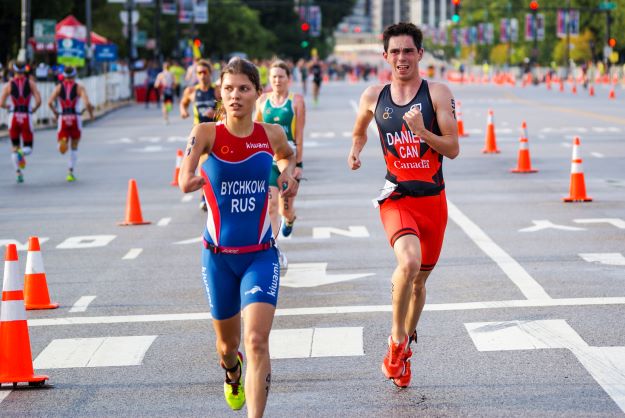
“In high school his athleticism didn’t strike me – his focus was the main thing,” Dinos coach Doug Lamont remembers.
“Stef has an insane ability to suffer and internal drive to push himself,” says Triathlon Canada’s Para triathlon coach Carolyn Murray. “He is a well-rounded athlete with strong agility, big engine and is able to master new skills.”
Lamont credits Murray for allowing Daniel to compete with the cross-country team over the last few years. It’s not an easy transition. The world Para triathlon championships are usually at the beginning of September, and Daniel typically misses the first week of school, flies back home to Calgary, spends a few days recovering from jet lag, then joins the team.
“Carolyn is doing a great job with him, allowing him to pursue this opportunity at the university with the cross country,” Lamont says. “When he’s in town and in a running phase, he really works with the team and does stuff that’s good for the team.”
Daniel loves the team aspect of cross country running, the “feeling that you’re being counted on.”
While triathlon is his focus right now, Daniel says he would like to take on some other running challenges at some point. Of course, there will be another go at a national cross-country title with his Dino teammates, but at some point he’d like to take on a marathon, too.
All that will have to wait, though, because in August Stefan Daniel will be diving into the water in Tokyo harbour, looking to move up a spot on the Paralympic triathlon podium. Like that November day in 2019, it’ll be another pressure-packed event. Regardless of the result, though, simply doing his best will be more than enough.
Stefan Daniel doesn’t know any other way to compete.
This story originally appeared in the April issue of Canadian Running Magazine.
